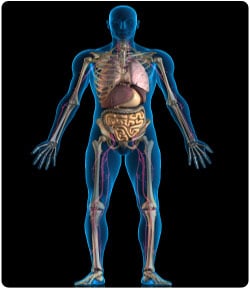Dietary supplements worth $1.3 Million are to be destroyed in US. The FDA said the ‘body-building’ products contained unapproved food additives.
The U.S. District Court for the Eastern District of Michigan, Southern Division, last fortnight entered a consent decree that condemns and forfeits to the United States for destruction the dietary supplements, according to FDA website.A consent decree (also referred to as a consent order) is a judicial decree expressing a voluntary agreement between parties to a suit, especially an agreement by a defendant to cease activities alleged by the government to be illegal in return for an end to the charges.
“The court order is the result of efforts by the federal government to protect consumers from products for which there is inadequate information to assure that they do not present a significant or unreasonable risk of illness or injury,” said Michael Chappell, FDA’s acting associate commissioner for regulatory affairs. “It shows that the agency is prepared to use the necessary legal means to keep such products out of the marketplace.”
At the request of the FDA, U.S. Marshals seized more than 23,300 bottles of three dietary supplement products distributed by LG Sciences LLC, of Brighton, Mich. The seized products were marketed for use by body builders and distributed on the Internet and in retail stores under the names “Methyl 1-D,” “Methyl 1-D XL,” and “Formadrol Extreme XL.”
Based on laboratory tests, the FDA determined that the products contain one or more unapproved food additives and/or new dietary ingredients for which there is inadequate information to assure that the ingredients do not present a significant or unreasonable risk of illness or injury. Specifically, the condemned Methyl 1-D and Methyl 1-D XL contained 1,4,6-androstatriene-3,17-dione, also known as “ATD” or 1,4,6-etioallocholan-dione. The condemned Formadrol Extreme XL contained ATD and 3,6,17-androstenetrione (also known as “6-OXO”). Both of these substances are steroids that inhibit the activity of the enzyme aromatase and may be found in dietary supplements promoted to boost testosterone levels.
The FDA has no scientific information concerning the safety of the condemned products or their ingredients and, thus, cannot determine whether they represent a hazard to consumers. Under the circumstances, consumers who use or have used the products should discuss their use with their health care professionals, the website said.
Advertisement
The FDA issued a public warning and the company recalled these products because some of the products were associated with a number of serious liver injuries. It received 23 reports of serious health problems ranging from jaundice and elevated liver enzymes, which are indicators of potential liver injury, to liver damage requiring liver transplant. Furthermore, one death due to liver failure was reported to the FDA.
Advertisement
The FDA has taken other recent actions to help protect the safety of consumers of products marketed as dietary supplements. This March, the FDA issued a nationwide alert about more than 70 tainted weight loss products containing undeclared, active pharmaceutical ingredients - including prescription-only drugs. The FDA has also established good manufacturing practice regulations for dietary supplements which have gone into effect for large companies. Smaller manufacturers have until 2009 or 2010 to comply.
“We live in an age where there is a multitude of foods and dietary supplements to choose from in the marketplace, but whether you get your products from the local store or through the Internet, you must always remain vigilant. In order to provide the highest protection for your family, FDA suggests that you consult with a health care professional before using any dietary supplement because many supplements contain ingredients that have strong biological effects, and such products may not be safe for all people,” Sundlof said.
Source-Medindia
GPL/S












